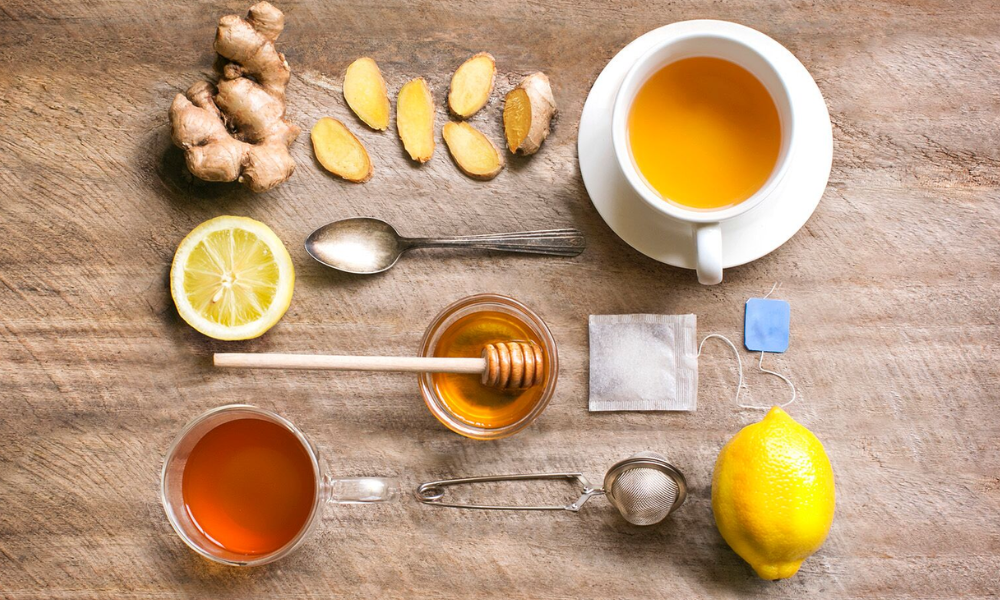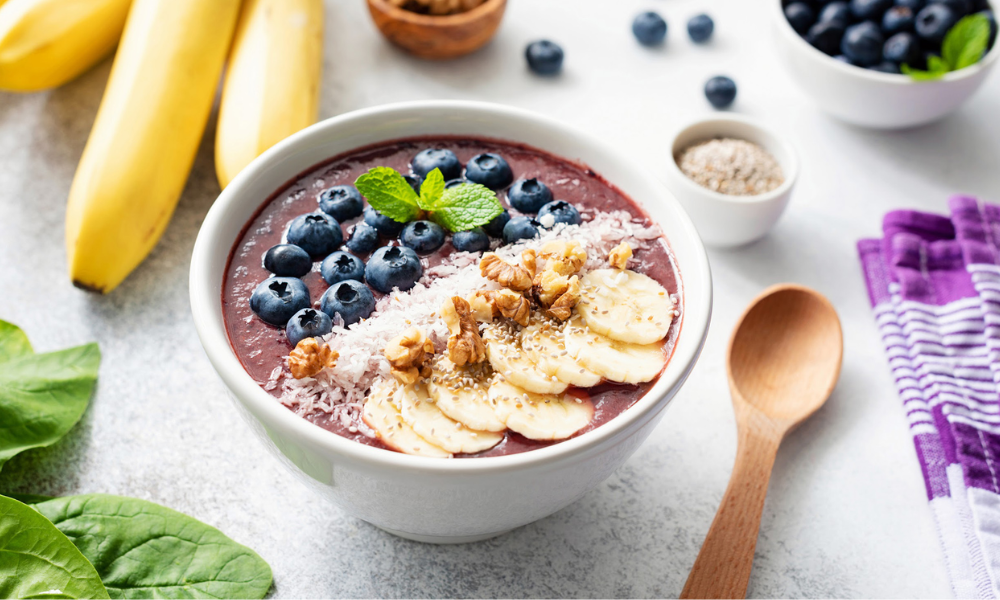It doesn’t matter if you have a common cold or the flu; being sick is a miserable experience either way. Even if you are not hungry or have the energy to cook, eating small, frequent meals and staying hydrated can still be beneficial. Certain meals can aid in the reduction of inflammation and discomfort.
When you’re sick, eating could be the last thing on your mind. The appropriate foods, however, can do much more than merely provide you energy when you’re ill. You might feel better, recover more quickly, or stay hydrated while recovering with the aid of some meals.
What Foods to Eat When You’re Sick?
It’s critical to get enough rest and stay hydrated when you’re sick. You may feel better by consuming foods that are nutritious and simple to digest. You can feel better by eating foods that are nutritious and simple to digest. Here are some suggestions for sick-day foods:
- Clear liquids, such as water, broth, and sports drinks, can help you stay hydrated.
- Warm liquids: Hot tea, soup, and warm water with Honey and lemon can help relieve congestion and soothe a sore throat.
- Soft foods, such as cooked cereals, mashed potatoes, and applesauce, can be soothing to an upset stomach.
- Plain toast, crackers, and rice can help soothe an upset stomach.
- Electrolyte-rich foods: Bananas, sweet potatoes, and yogurt can help replace electrolytes lost through vomiting and diarrhea.
It’s also a good idea to avoid high-fat foods, which can be difficult to digest and may aggravate symptoms.
Is it Advisable to Eat Bananas?
Eating bananas is a simple and effective technique to replenish the body’s electrolytes while you’re ill. For those who have diarrhea, this fruit’s high potassium content is especially beneficial. Additionally, it can relieve weariness.
Bananas are rich in vitamins, carbs, and potassium, among other nutrients. They are rich in soluble fiber, which can facilitate digestion.
According to some research, bananas’ antioxidant qualities may be useful for curing a cold’s symptoms. They may also aid in strengthening the immune system. They may lessen the risk of heart disease.
Bananas can be beneficial for your health, but it’s best to consume them in moderation. Start by cutting back on your portions if eating a banana causes you any tummy discomfort.
Is Chicken Soup Healthy?
Chicken soup can help you recover from a cold. It not only tastes nice, but it also gives you vital nutrients that will aid in your body’s recovery. The heated liquid in the soup aids in maintaining your hydration and opening nasal passages.
Chicken soup contains a lot of anti-inflammatory ingredients. This includes the powerful antibacterial and anti-inflammatory ingredients ginger, garlic, and turmeric. The antioxidants known as polyphenols also have anti-inflammatory properties.
Additionally, it contains enough tryptophan. This amino acid contributes to the synthesis of serotonin, which elevates mood.
Simple chicken soup is simple to make. You may prepare a large quantity of it in a crock pot.
Can We Eat Bone Broth?
Bone broth can be a nice comfort dish if you have the flu. Providing vitamins, minerals, and amino acids, it is a warm liquid. It helps your body fight off the infection, making it one of the greatest meals to eat when you’re sick.
Bone broth not only helps you feel better, but it also strengthens your immune system. You may feel better soon after doing this. Your digestive system may also benefit from it.
Additionally, it benefits your skin. It has collagen, a protein that keeps your skin looking young. It also aids with skin restoration.
You should opt for organic and grass-fed bone broth. Most collagen is found in these kinds of bones.
Can We Eat Salt and Pepper Flax Crackers?
Salt and pepper flax crackers can help with colds and stomachaches. They are a simple way to increase the amount of good fiber in your diet. These crackers’ seeds are abundant in lignans, a class of polyphenols that have been associated with decreased risks of breast cancer in females. Additionally, they contain a lot of magnesium, which is vital for healthy nerves.
Flaxseed crackers make a delicious swap for sweets high in sugar and go well with cheese. These crunchy snacks are low in carbohydrates, vegan, and gluten-free. Additionally, they are a wonderful source of fiber and protein.
They are simple to create as well. Flaxseed meals and some water are all that is required. Brown flaxseed meals can be used to add a neutral flavor. Try adding some oozy flaxseed or garlic powder for some extra spiciness.
Is Herbal Tea Beneficial?
There are several benefits to drinking herbal tea when you’re ill. The warm drink, first and foremost, calms your nose and throat passageways. Congestion and headache relief are other benefits. You might also be shocked to learn that some teas have antioxidants that fight free radicals.
Most likely, you’ve heard of chamomile tea. Since ancient times, people have used this calming plant to treat colds and coughs. With Honey, it tastes really good.
Teas made from herbs can also be an excellent approach to controlling allergy symptoms. These plants can help with circulation, pain relief, and even flu prevention.
There are numerous varieties of tea, each with unique advantages. Some have vitamin C in them, which can help your immune system. Others have antibacterial and antioxidant components.
Is Honey Helpful When We are Sick?
A bacterial infection may be the cause of a sore throat. Antimicrobials in Honey are abundant and aid in the healing of several kinds of infections.
Although it shouldn’t be given to infants less than 12 months, Honey may be useful in treating children’s coughs. In a 2018 review, Honey was put up against popular over-the-counter children’s cough medicines, a placebo, and no treatment.
Are Fermented Foods Healthy?
Probiotics, or good bacteria, are found in fermented foods like sauerkraut, kimchi, yogurt, kefir, and kombucha, which can help with digestion and fend against pathogens that cause illness.
According to Brittany Michels, a registered dietician with The Vitamin Shoppe, they can specifically aid in the diversification of the gut microbiota, which is crucial for maintaining a healthy immune system, as well as the breakdown of complex foods in your digestive system.
Which Citrus Fruits to Eat?
Vitamin C, which strengthens blood vessels, bones, and muscles, is abundant in fruits like oranges, apples, and grapefruit and can help strengthen the immune system. Due to their high water content, they also hydrate. Oranges contain more than 80% water. A cold may last less time if you take vitamin C, according to some research.
Citrus fruits have a high acidity level, which could exacerbate stomach upset symptoms.
Can We Eat Ice Pops?
Eating ice pops when you’re sick may help to provide some temporary relief from a sore throat or other symptoms. Ice pops can be soothing to the throat and help to hydrate the body, which is especially important when you’re sick. However, it’s important to remember that ice pops are primarily made of sugar and water, and they don’t contain many nutrients.
While they can be a tasty treat, it’s important to get your nutrients from other sources as well, such as broth-based soups, fruits, and vegetables. When you’re sick, it’s also important to drink plenty of fluids, and ice pops can help with that. Choose ones that are low in sugar or made with natural sweeteners, and make sure to balance them out with other healthy foods as part of your overall diet.
Ice pops are an excellent snack to consume when you’re ill. A pleasant way to cool off after a day in the sun, they also. Using a homemade recipe allows you to consume a lot of vitamins and nutrients while also relieving the discomfort of a sore throat.
How do you Remain Hydrated?
Dehydration is a common symptom of the illness. When you have a fever, you sweat out more water in addition to eating and drinking less overall.
On the other hand, maintaining hydration supports the healthy bodily operation. Fluids can also aid in reducing congestion.
The best hydrating beverage is water, which comes in the first place. Additionally, it detoxifies your body naturally.
If you’re dehydrated, you might also think about drinking low-sugar sports drinks or other liquids with electrolytes, like Pedialyte. Pedialyte should only be consumed as directed by a medical professional.
What Foods to Avoid While We are Sick?
When you’re sick, you should avoid foods that are difficult to digest or may irritate your digestive system. Here are some foods you should avoid while you’re sick:
- Spicy foods can aggravate a sore throat and worsen stomach problems.
- Acidic foods: Citrus fruits, tomatoes, and other acidic foods can irritate a digestive system that is already sensitive.
- Fried foods, fatty meats, and other high-fat foods can be difficult to digest and may aggravate your symptoms.
- Carbonated drinks can cause bloating and gas, which can be unpleasant when you’re already sick.
- Caffeine: Caffeine is a stimulant that can disrupt sleep, which is essential for your body’s recovery when you’re sick.
It’s a good idea to avoid alcohol while sick because it can interfere with medications and dehydrate you.
Conclusion
It’s crucial to obtain the nutrients and calming effects of foods and drinks without exerting too much effort. To turn your house into a one-stop store when you’re feeling down, keep canned soup on hand and tea in the cabinet. If comfort food is what you’re craving, that is also acceptable. Pick the one that is most convenient for you or your child right now.
Drink plenty of water, eat frequently, and give nutrient-rich foods top priority.

